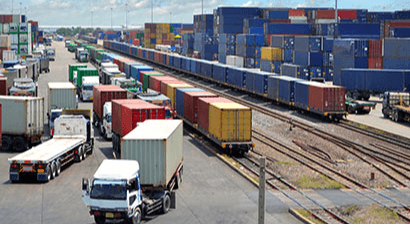The Impact of the Levi Strauss SA Judgment
Recently the Supreme Court of Appeal handed down judgment in a long running dispute between Levi Strauss SA (Pty) Ltd (“Levi SA”) and the South African Revenue Service (“SARS”). The Judgment is cited as Commissioner: SARS v Levi Strauss SA (Pty) Ltd (509/2019) [2021] ZA SCA 32 (7 April 2021).
The issues in dispute were:
- Can Levi SA rely on the origin certificates if goods, originating in a Southern African Development Community (“SADC”) member state and sold to a third party based in a non-SADC member state, but is consigned directly from the supplier/ provider in such member state to Levi SA in South Africa, being a SADC member state (“the Origin question”)?
- Under which circumstances will commission, paid to a third party, constitute buying commission, which must be added to the transaction value [with reference to section 66 of the Customs & Excise Act, 91 of 1964 (“the Customs Act”)]. This will be referred to as the “Buying commission question”; and
- When must royalty payments, with reference to section 67(1)(c) of the Customs Act, be added to the transaction value with reference to section 66 of the Customs Act (“the Royalty question”).
Regarding the Origin question the important principle laid down by the Supreme Court of Appeal is that firstly the movement of the goods (i.e., on the understanding that the origin requirements are met) is the determining factor, i.e., the goods must be consigned directly from the consignor/ supplier to the consignee who must both be located in member states of SADC. The underlining commercial transactions are not relevant. Secondly the Commissioner of SARS determined that the origin certificates were invalid. Although SARS can defend a determination on any grounds, i.e., with reference to the concept of a wide appeal, it cannot, for example, rely on alleged misrepresentation and fictitious invoices as that was not the basis of the determination. Therefore, if goods originate in a SADC member state and the supplier/ consignor sells it to a third party based in Europe, Hong Kong or Singapore for example, but the goods are consigned directly to the consignee in South Africa, the importer/ consignee can rely on such origin certificate to claim a preferential duty rate in terms of the SADC Protocol. However, an importer will have to comply with the requirements of the Customs Act for the entry processed.
The second question addressed was the Buying commission question, namely when will the commission paid to a third party constitute buying commission? Buying commission is not dutiable and therefore not added to the transaction value referred to in section 66 of the Customs Act. In section 65 the term buying commission is defined to mean “any fee paid by an importer to the importer’s agent for the service of representing the importer aboard in the purchase of goods being valued”.
It is not uncommon for a local importer to appoint an agent to assist, with the sourcing and purchasing of goods in a foreign country specifically in the East such as China. Generally, the importer will pay the agent a commission for services rendered. The Supreme Court of Appeal made it clear that in determining whether a third party is a genuine buying agent, the essence of the relationship between the importer and agent must be determined. On the facts, should the agent assist the importer with the sourcing and purchasing of goods and if the principal and not the agent is in control of the process (i.e., has the final say in what is purchased) a buying agency relationship exists. On the facts it was held that Levi SA was not dictating to or in control of the agent and therefore the commissions were held dutiable. This is especially relevant to multinational companies with a centralised purchasing department.
The third question i.e., the Royalty question related to when royalty payments will be dutiable, i.e., to be added to the transaction value referred to in section 66 of the Customs Act. If such amounts are added to the invoice price, it will result in an increased transaction value and a liability for under paid duties and Value-Added Tax can arise. Generally, the transaction value is the invoice price paid for the imported goods. Section 67(1)(c) states that “royalties and license fees in respect of the imported goods, including payments for patents, trademarks and copyright and for the right to distribute or resell the goods, due by the buyer, directly or indirectly, as a condition of sale of the goods for export to the Republic to the extent that such royalties and fees are not included in the price actually paid or payable…”.
Following an analysis of international rulings on the question, the Supreme Court of Appeal concluded that the obligation to pay royalty should not necessarily be a term of the contract between the supplier and purchaser. If it is a term, then obviously the payments will be directly linked to the export sale and be dutiable, i.e., to be added to the invoice price. As the royalty payments are concerned with the contract in terms of which goods are imported into South Africa and even if payable to a third party other than the seller, it can still be due indirectly. It will be due indirectly as a condition of sale when the goods cannot be imported unless the fees are paid. This will be determined with reference to the nature of the relationship between the exporter, importer and licensor when viewed as a whole. In a group structure, as in the case of Levi Strauss, which is a multinational with subsidiaries throughout the world of which Levi SA is one, the Supreme Court of Appeal held that the payments are indirectly linked to the sale for export of the goods to South Africa as without such payment the goods will not be exported to Levi SA. The broader control test was followed by the Court. Therefore, on export the obligation to pay arise, but the liability will fall due when the goods are sold in South Africa being the mechanism for calculating the royalties due to the licensor.
Considering the judgment, the question then arises why the need for the provisions of section 67(c) of the Customs Act, as for example in a multinational group structure royalty or license fees will always be dutiable because without paying such fees the goods will not be exported to the importer in South Africa.
Furthermore, the Supreme Court of Appeal also did not address the practicalities of such determination. At the time of importation, it is uncertain whether the duty payment will become due as there is not yet certainty on whether and when the goods will be sold in South Africa. As stated, the liability will only arise if sold locally and it remains an uncertainty how the initial transaction value will have to be corrected. Regarding the Royalty question, the judgment might leave importers with more questions than answers.





